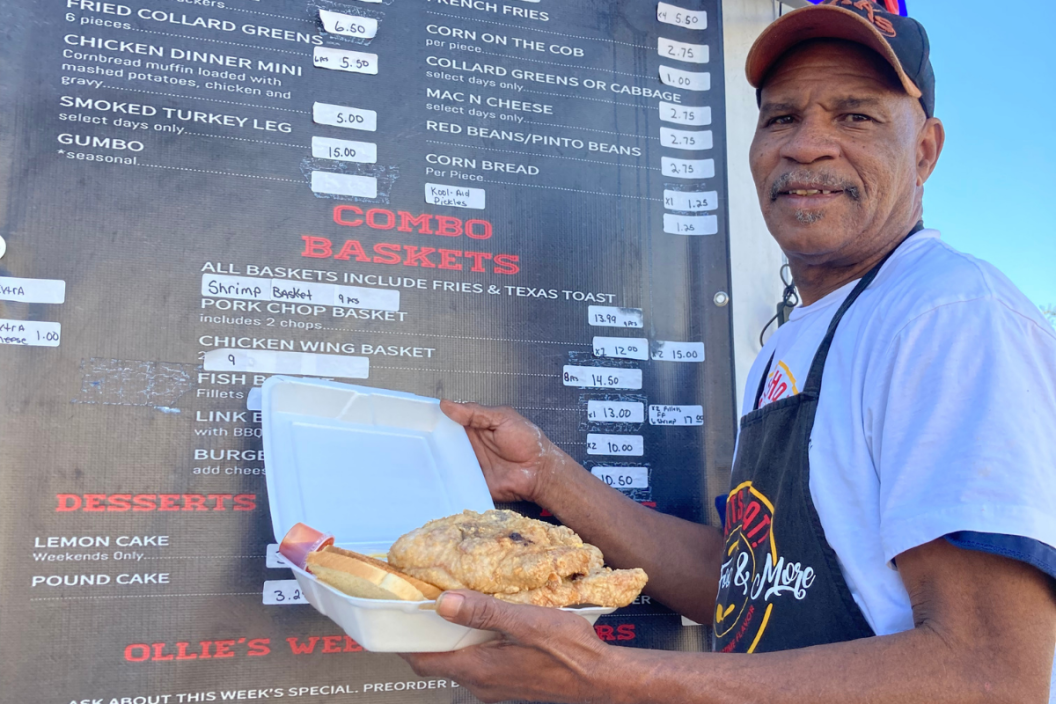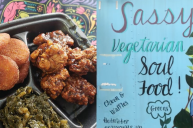Cornbread, fried chicken, black-eyed peas, and collard greens are indistinguishable ingredients found in soul food. But what makes soul food different than Southern food?
A term introduced in print during the 1960s during the rise of the civil rights marches and Black nationalist movements, soul food might seem just like southern fare, but at its core, soul food is more than gumbo and okra. It's about the people who make it.
The History of Soul Food
While the name "soul food" originated in the 1960s, the African American food culture has been around since the American colonial period when slaves were given limited rations by their masters. Typically rations such as cornmeal, lard, molasses, peas, greens, flour, and some kind of meat, were distributed every Saturday. Some enslaved people were permitted to gather fresh produce from the gardens as well. From these ingredients came classic recipes such as fried chitlins, bbq, cornbread, fried fish, and cooked okra. It was a cooking culture that came to fruition out of necessity and the limits that were put on enslaved African Americans.
Once slavery was abolished, the Great Migration brought soul food and southern cuisine to the North and West as six million Black southerners moved to more urban areas of the United States. With them, they brought comfort food recipes from home. As Adrian Miller shared with Epicurious, "Soul food is really more about what African-Americans are eating outside of the South."
Soul Food: The Surprising Story of an American Cuisine
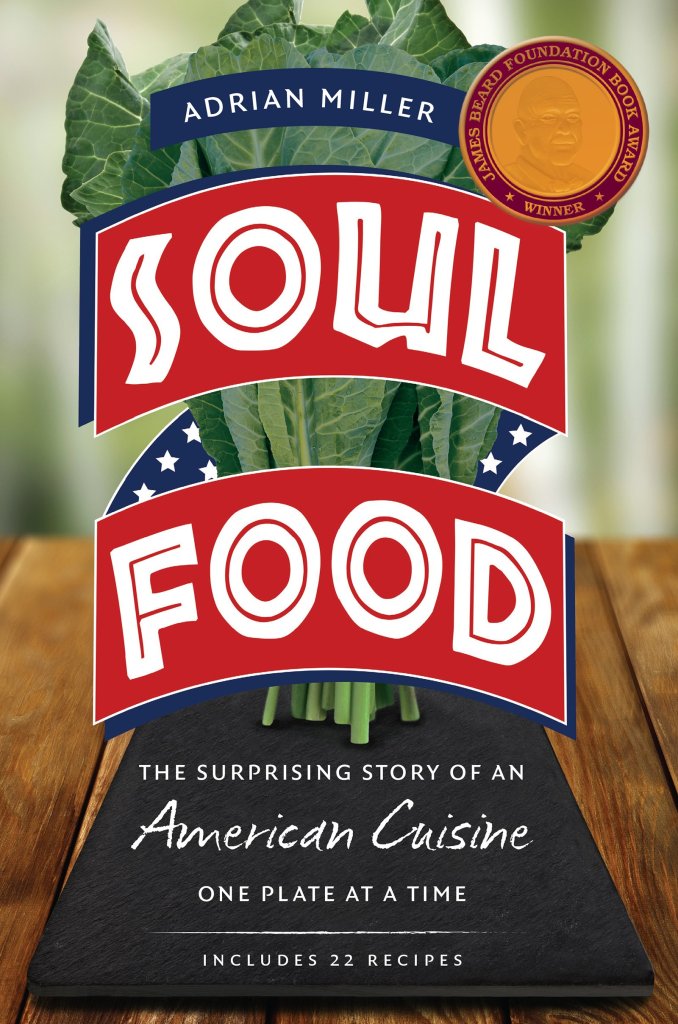
In the 1960s soul food restaurants began to open in large cities, including Sylvia Woods now-famous restaurant, Slyvia's, in Harlem, a neighborhood in New York City. Known as the "Queen of Soul Food," Slyvia's started out as a small luncheonette that consisted of 15 stools and six booths. Today the family-run enterprise boasts two restaurants, a full-service catering hall, a nationwide line of Slyvia's Food Products, and cookbooks. Menu items include home cooking specialties such as chicken and waffles, fried pork chops, candied yams, grits, and macaroni and cheese. Wash it down with a red drink.
Soul Food and Family
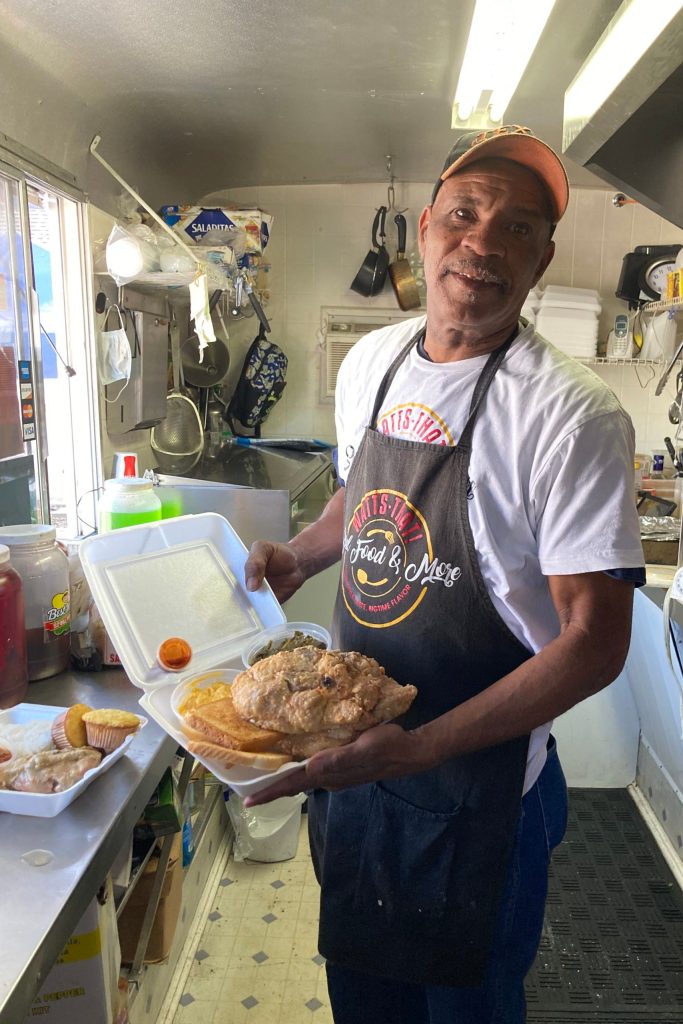
Alexandria Ellison
"It's all about the soul", according to soul food truck owner, Tony Watts, who runs Watts That Soul Food in Austin, Texas. For Watts, soul food has always been a part of his diet. A self-proclaimed "Mamma's Boy," Watts would spend the day in the kitchen learning how to cook smothered chicken and fried turkey legs with his mother and aunties while his siblings played in the yard.
Opening a food truck wasn't always his dream, but rather it was something that made sense to pursue after he was laid off from his job at the beginning of the coronavirus pandemic. He notes he's always had somewhat of an entrepreneurial spirit.
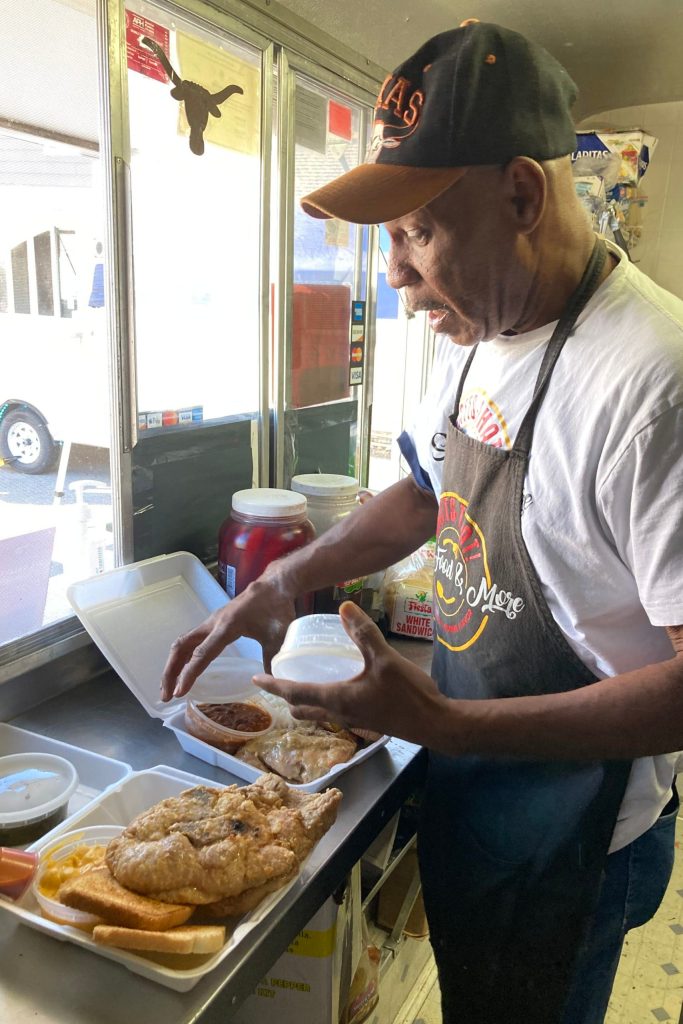
Alexandria Ellison
As a child, Watts would visit one of his Aunties for the entire summer. Bored and wanting to head back home, Watts asked his auntie for bus fare, but instead of coins, she handed him turkey legs and necks and said, "What you do is you go on out this corner, you holler, 'turkey legs!' 'turkey necks!' 'turkey legs!'" And sure enough, they started selling. Watts sold out, went back to the kitchen to fry some more up, and sold out a second time.
"I like cooking because it makes me feel good," Watts notes, sharing how he gets joy from sharing his food with hungry Austinites.
For Watts, soul food was just a way of life. "I grew up raising our own chickens and cows and using all parts of it was normal" He notes that dishes such as turkey necks were favorite dishes in his family. "Soul food is just soul!"
The Difference Between Southern Food and Soul Food
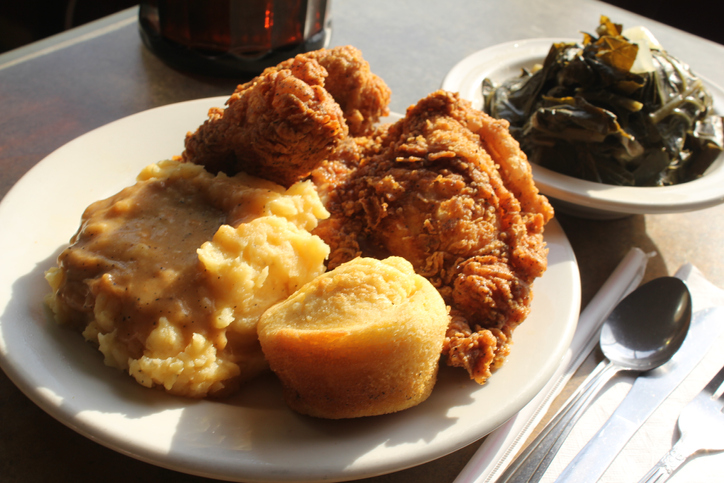
Getty Images
Not all Southern food is soul food, but all soul food is Southern food. According to Miller, Southern food is the mother of soul food.
Southern food is a larger repertoire of food, but soul food is really the limited menu that was taken outside the south. As people left the South, they did what any other immigrant group does: They tried to re-create home.
The soul food recipes we know today are derived from the food Black Southerners used to eat to celebrate a special occasion. Today it is a large part of Black American culture and continues to gain popularity as a food that promotes community. Soul food restaurants are found in many cities, with vegan soul food gaining popularity to showcase a plant-forward approach to the cuisine.
If you haven't tried soul food before, make a trip down to Watts That Soul Food in Austin, Texas, and grab a big plate of smothered chicken or gumbo.
READ MORE: Soul Food Was at the Heart of the Civil Rights Movement in Montgomery
